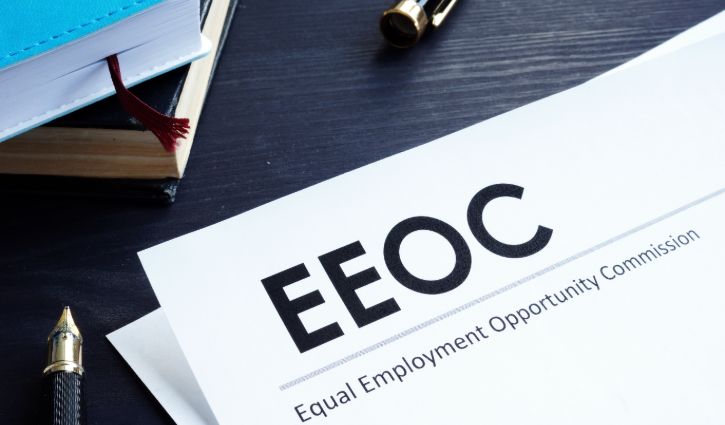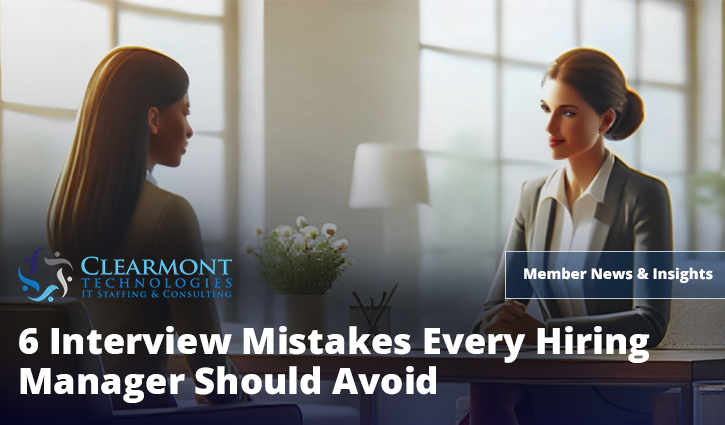On Oct. 25, 2021, the Equal Employment Opportunity Commission (EEOC) issued six new answers to frequently asked questions (FAQs) about how employers should handle employee requests for religious exceptions to their workplace COVID-19 vaccine mandates. The FAQs address rules that apply to this type of request under Title VII of the Civil Rights Act (Title VII), which is a federal law that prohibits employment discrimination based on religion and other protected traits.
This Compliance Bulletin provides the six new FAQs below. Employers that are subject to Title VII and other federal fair employment laws should not only become familiar with these FAQs but also review the EEOC’s full guidance on COVID-19 and federal fair employment laws. The EEOC initially issued that guidance on March 18, 2020, and updated it several times since.
An employer is subject to Title VII if it has 15 or more employees. Smaller employers may be subject to similar rules under applicable state or local laws.
ACTION STEPS
All employers should follow the most current guidelines and suggestions for maintaining workplace safety issued by the Centers for Disease Control and Prevention (CDC) and any applicable state or local health agencies. Employers with 15 or more employees should also become familiar with and follow the guidance provided in all of the EEOC’s FAQs about compliance with federal fair employment laws. These and all smaller employers should also ensure that they comply with all applicable state and local anti-discrimination laws.
HIGHLIGHTS
Vaccine Mandate Exemptions for Religious Beliefs
The EEOC’s new FAQs clarify, among other things, that employers with a COVID-19 vaccine mandate:
- Must provide reasonable accommodations to employees who request to be exempt due to “sincerely held religious beliefs, practices or observances”;
- Do not have to provide accommodations that would cause “undue hardship” on their business;
- Must consider all potential accommodations before denying an employee’s request for a religious exemption;
- Should generally avoid questioning the sincerity or nature of an employee’s religious beliefs, unless they have objective reasons for doubting it; and
- Do not have to grant vaccine mandate exemptions for social, political or economic views or personal preferences.
[display_mode mode=”non-member-only”]Members login to access full article[/display_mode]
[display_mode mode=”member-only”]L. Vaccinations—Title VII and Religious Objections to COVID-19 Vaccine Mandates
Title VII prohibits employment discrimination based on religion. This includes a right for job applicants and employees to request an exception, called a religious or reasonable accommodation, from an employer requirement that conflicts with their sincerely held religious beliefs, practices or observances. If an employer shows that it cannot reasonably accommodate an employee’s religious beliefs, practices or observances without undue hardship on its operations, the employer is not required to grant the accommodation. Although other laws, such as the Religious Freedom Restoration Act (RFRA), may also protect religious freedom in some circumstances, this guidance only describes employment rights and obligations under Title VII.
L.1. Do employees who have a religious objection to receiving a COVID-19 vaccination need to tell their employer? If so, is there specific language that must be used under Title VII?
Employees must tell their employer if they are requesting an exception to a COVID-19 vaccination requirement because of a conflict between that requirement and their sincerely held religious beliefs, practices or observances (hereafter called “religious beliefs”). Under Title VII, this is called a request for a “religious accommodation” or a “reasonable accommodation.”
When making the request, employees do not need to use any “magic words,” such as “religious accommodation” or “Title VII.” However, they need to notify the employer that there is a conflict between their sincerely held religious beliefs and the employer’s COVID-19 vaccination requirement.
The same principles apply if employees have a religious conflict with getting a particular vaccine and wish to wait until an alternative version or specific brand of COVID-19 vaccine is available.
As a best practice, an employer should provide employees and applicants with information about whom to contact and the procedures (if any) to use to request a religious accommodation.
L.2. Does an employer have to accept an employee’s assertion of a religious objection to a COVID-19 vaccination at face value? May the employer ask for additional information?
Generally, under Title VII, an employer should assume that a request for religious accommodation is based on sincerely held religious beliefs. However, if an employer has an objective basis for questioning either the religious nature or the sincerity of a particular belief, the employer would be justified in making a limited factual inquiry and seeking additional supporting information. An employee who fails to cooperate with an employer’s reasonable request for verification of the sincerity or religious nature of a professed belief risks losing any subsequent claim that the employer improperly denied an accommodation.
The definition of “religion” under Title VII protects nontraditional religious beliefs that may be unfamiliar to employers. While the employer should not assume that a request is invalid simply because it is based on unfamiliar religious beliefs, employees may be asked to explain the religious nature of their belief and should not assume that the employer already knows or understands it. By contrast, Title VII does not protect social, political, or economic views or personal preferences. Thus, objections to COVID-19 vaccination that are based on social, political, or personal preferences or on nonreligious concerns about the possible effects of the vaccine do not qualify as “religious beliefs” under Title VII.
The sincerity of an employee’s stated religious beliefs also is not usually in dispute. The employee’s sincerity in holding a religious belief is “largely a matter of individual credibility.” Factors that—either alone or in combination—might undermine an employee’s credibility include whether the employee has acted in a manner inconsistent with the professed belief (although employees need not be scrupulous in their observance); whether the accommodation sought is a particularly desirable benefit that is likely to be sought for nonreligious reasons; whether the timing of the request renders it suspect (for example, if it follows an earlier request by the employee for the same benefit for secular reasons); and whether the employer otherwise has reason to believe the accommodation is not sought for religious reasons.
The employer may ask for an explanation of how the employee’s religious belief conflicts with the employer’s COVID-19 vaccination requirement. Although prior inconsistent conduct is relevant to the question of sincerity, an individual’s beliefs —or degree of adherence—may change over time; therefore, an employee’s newly adopted or inconsistently observed practices may nevertheless be sincerely held. An employer should not assume that an employee is insincere simply because some of the employee’s practices deviate from the commonly followed tenets of the employee’s religion or because the employee adheres to some common practices but not others. No one factor or consideration is determinative, and employers should evaluate religious objections on an individual basis.
When an employee’s objection to a COVID-19 vaccination requirement is not religious in nature or is not sincerely held, Title VII does not require the employer to provide an exception to the vaccination requirement as a religious accommodation.
L.3. How does an employer show that it would be an “undue hardship” to accommodate an employee’s request for religious accommodation?
Under Title VII, an employer should thoroughly consider all possible reasonable accommodations, including telework and reassignment. For suggestions about types of reasonable accommodations for unvaccinated employees, see K.6. In many circumstances, it may be possible to accommodate those seeking reasonable accommodations for their religious beliefs, practices or observances without imposing an undue hardship.
If an employer demonstrates that it is unable to reasonably accommodate an employee’s religious belief without an “undue hardship” on its operations, then Title VII does not require the employer to provide the accommodation. The Supreme Court has held that requiring an employer to bear more than a “de minimis,” or a minimal, cost to accommodate an employee’s religious belief is an undue hardship. Costs to be considered include not only direct monetary costs but also the burden on the conduct of the employer’s business—including, in this instance, the risk of the spread of COVID-19 to other employees or to the public.
Courts have found Title VII undue hardship where, for example, the religious accommodation would impair workplace safety, diminish efficiency in other jobs, or cause co-workers to carry the accommodated employee’s share of potentially hazardous or burdensome work.
An employer will need to assess undue hardship by considering the particular facts of each situation and will need to demonstrate how much cost or disruption the employee’s proposed accommodation would involve. An employer cannot rely on speculative hardships when faced with an employee’s religious objection but should instead rely on objective information. Certain common and relevant considerations during the COVID-19 pandemic include, for example, whether the employee requesting a religious accommodation to a COVID-19 vaccination requirement works outdoors or indoors, works in a solitary or group work setting, or has close contact with other employees or members of the public (especially medically vulnerable individuals). Another relevant consideration is the number of employees seeking a similar accommodation (that is, the cumulative cost or burden on the employer).
L.4. If an employer grants some employees a religious accommodation from a COVID-19 vaccination requirement because of sincerely held religious beliefs, does it have to grant the requests of all employees who seek an accommodation because of sincerely held religious beliefs?
No. The determination of whether a particular proposed accommodation imposes an undue hardship on the conduct of the employer’s business depends on its specific factual context. When an employer is assessing whether exempting an employee from getting a vaccination would impair workplace safety, it may consider, for example, the type of workplace, the nature of the employee’s duties, the number of employees who are fully vaccinated, how many employees and nonemployees physically enter the workplace, and the number of employees who will in fact need a particular accommodation. A mere assumption that many more employees might seek religious accommodation to the vaccination requirement in the future is not evidence of undue hardship, but the employer may take into account the cumulative cost or burden of granting accommodations to other employees.
L.5. Must an employer provide the religious accommodation preferred by an employee if there are other possible accommodations that also are effective in eliminating the religious conflict and do not cause an undue hardship under Title VII?
No. If there is more than one reasonable accommodation that would resolve the conflict between the vaccination requirement and the sincerely held religious belief without causing an undue hardship under Title VII, the employer may choose which accommodation to offer. If more than one accommodation would be effective in eliminating the religious conflict, the employer should consider the employee’s preference but is not obligated to provide the reasonable accommodation preferred by the employee. If the employer denies the employee’s proposed accommodation, the employer should explain to the employee why the preferred accommodation is not being granted.
An employer should consider all possible alternatives to determine whether exempting an employee from a vaccination requirement would impose an undue hardship. See K.2. Employers may rely on CDC recommendations when deciding whether an effective accommodation is available that would not pose an undue hardship.
L.6. If an employer grants a religious accommodation to an employee, can the employer later reconsider it?
The obligation to provide religious accommodations absent undue hardship is a continuing obligation that takes into account changing circumstances. Employees’ religious beliefs and practices may evolve or change over time and may result in requests for additional or different religious accommodations. Similarly, an employer has the right to discontinue a previously granted accommodation if it is no longer utilized for religious purposes or if a provided accommodation subsequently poses an undue hardship on the employer’s operations due to changed circumstances. As a best practice, an employer should discuss with the employee any concerns it has about continuing a religious accommodation before revoking it and consider whether there are alternative accommodations that would not impose an undue hardship.
Source: Equal Employment Opportunity Commission
[/display_mode]












